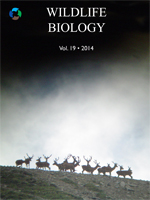A variety of Amazonian mammals serve as sources of food for its human inhabitants, but hunting can have a strong negative impact on them. Diversity, abundance, biomass, and average group size of medium-sized and large mammals are compared across two forest areas of the northern Amazon: the Viruá National Park (protected) and the Novo Paraíso settlement (a human settlement where hunting is permitted). Hunting pressure was also characterized in Novo Paraíso. A total of 33 mammal species were recorded. There were no significant differences in the sighting rates, relative abundance and biomass, and mammal group sizes between the two areas, although the totals of all these variables were higher in Viruá due to the higher abundance of Tayassu pecari, which was not recorded at Novo Paraíso. It is suggested that T. pecari may be on the verge of local extinction, as it was the most hunted species in the settlement area. Through interviews with 50 hunters, we estimate that 541 mammals of 20 species were hunted during the study year, resulting in an estimated biomass take of 8517 kg. While the hunting intensity in Novo Paraíso may be sustainable in the short term, the reported decline of hunting efficiency, combined with the extirpation of T. pecari, suggests that mammal abundance may decline there in the near future. In the study year, 849 hunts were carried out in a hunting effort of 4575 hours, with a maximum distance travelled of 5.4 km. There was an average of 4.82 consumers for each hunt, and a per capita harvest rate of 2.24 individuals/consumer year. Hunting was not only for subsistence, but also for retaliation, although some species may not be hunted due to cultural taboos. The need for quantification of harvesting rates to maintain hunting at sustainable levels is highlighted.
How to translate text using browser tools
1 December 2015
Diversity, abundance and the impact of hunting on large mammals in two contrasting forest sites in northern amazon
Éverton Renan de Andrade Melo,
José Ramon Gadelha,
Maria de Nazaré Domingos da Silva,
Antonio Paulo da Silva Júnior,
Antonio Rossano Mendes Pontes





